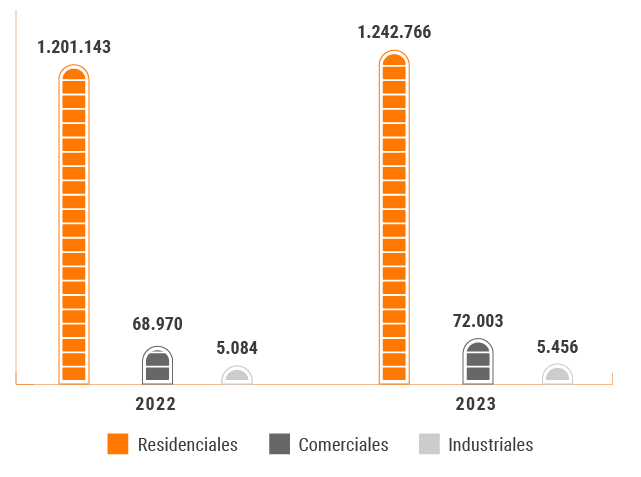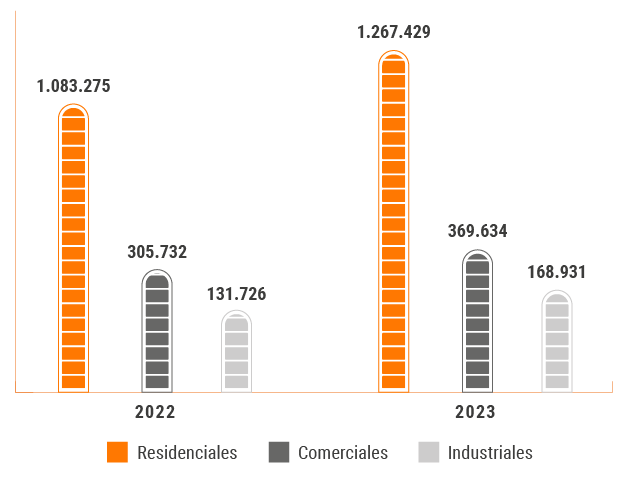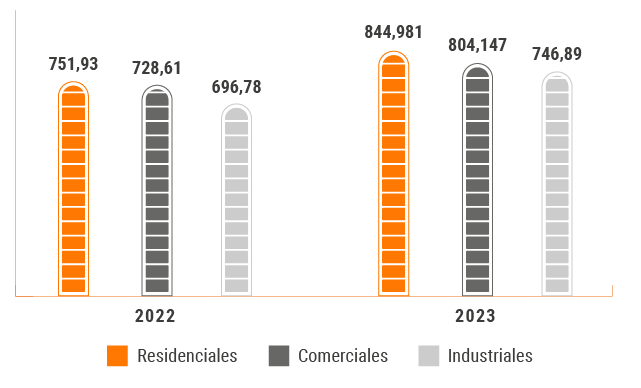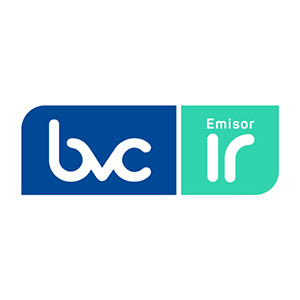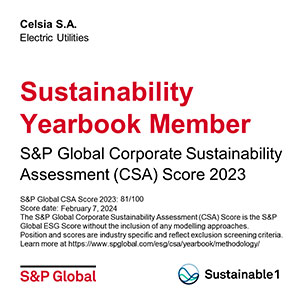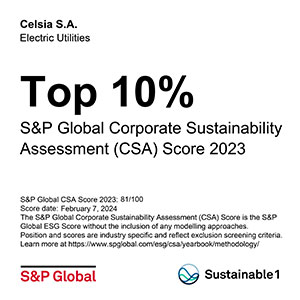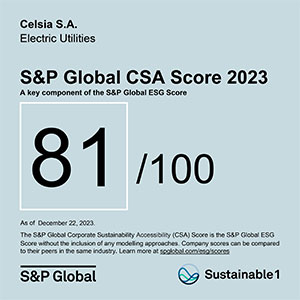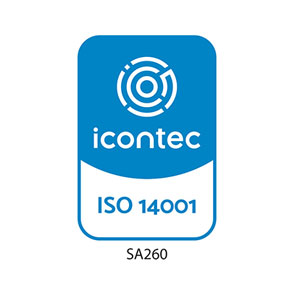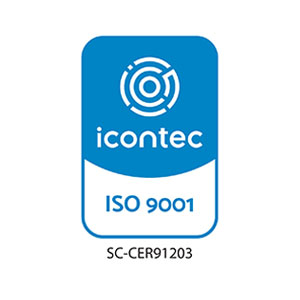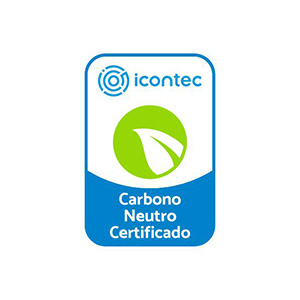At Celsia, we have gone beyond the conventional approach to energy sales, transcending the simple act of buying and selling services. We have transformed into a comprehensive cycle of in-person and digital support to consolidate ourselves as strategic partners in the energy efficiency of our customers.
GRI (3-3) We incorporate innovative products and services that add value. Our commitment is to provide well-being to homes, improve the productivity of companies and actively contribute to sustainability in cities. This commitment is reflected in our comprehensive commercial risk management policies and goals, which range from negotiations to delivering products and services to customers in both the wholesale and retail markets.
wholesale clients and retail customers
Retail Commercialization
GRI (3-3) Sellers on the retailer represent users of the electricity services before the national market. They are responsible for managing the acquisition and transporting energy from the production points to the customers’ consumption points, to satisfy their needs for lighting, conservation, transformation, entertainment and quality of life at home, in commerce, industry and government institutions.
As it is a basic utility, the provision of electricity in Colombia is subject to the guidelines of the Ministry of Mines and Energy, the standards of the Energy and Gas Regulatory Commission (CREG, for the Spanish original) and the supervision of the Superintendencies of Residential Public Utilities and Industry and Commerce. The regulations are aimed at satisfying customers’ requirements regarding their connection, meeting their energy needs, the availability of physical and virtual engagement channels, the content of bills and compliance with the Uniform Conditions Contract.
Celsia serves non-regulated customers in Colombia and large clients in Panama, who present a monthly demand of over 100 kW. In Colombia, non-regulated customers are also considered those who consume more than 55,000 kWh per month.
In Colombia, Celsia serves retail customers in municipalities in which it has coverage with its own networks:
Tolima
Valle del Cauca
Choco
Cundinamarca
Our Management
GRI (3-3) (2-23) (2-24) We stand out for our compliance with the standards that impact the quality of the services we provide, diligent customer service, development and sustainability of the market, our partners, and products and services based on cutting-edge technology, which contribute to maintaining a neutral environmental impact.
Our portfolio of services includes products and services that improve quality of life in homes and productivity in companies, focused on efficient energy use, service backup availability and the development of sustainable solutions, including:
- Conventional energy, self-generation and solar energy.
- Backup power.
- Electric mobility: vehicles and charging stations.
- Cooling districts and cogeneration.
- Electrical projects, efficient lighting and others.
- Our smart home and technology line with efficient appliances, audio and video products, sirens/alarms, computers, printers, cell phones, consoles and video games.
The Celsia bill allows customers to incorporate services provided by other agents, such as the collection of public lighting tax, security and citizen coexistence tax, cleaning, products from the Celsia Store and insurance.
Access to Power
We serve clients with regulated energy in the departments of Valle del Cauca and Tolima (Colombia) andmanage their connection according to the rules of the Energy and Gas Regulatory Commission promptly and without discriminating against customers, with continuous, reliable and safe services.
Our Customers
SASB IF-EU-000.B
for the first 100.58 kWh sold to residential customers each month.
Types of Customers
SASB IF-EU-240a.1 SASB IF-EU-000.
SASB: IF-EU-240a.4
Some external factors that impact access to energy service and its conservation are:
Hover over the icons to see more information.
and minor impact
and minor impact
- Public order problems and epidemiological risks.
- Natural and environmental factors.
and low impact
- More late payments due to decreased income in homes and companies, unemployment, illnesses and inflation.
- High volatility of legal and regulatory standards.
- Unavailability of networks near the customer’s location.
- More time managing field activities.
- Failure to comply with the client’s technical requirements.
The affordability of electricity services in the retail market being related to the response time from agents in the electricity sector, distributors and marketers.
Additionally, we have identified some risks and opportunities from the external factors mentioned above:
Risks
- Portfolio impairment due to a lack of payment in favor of Celsia and third parties.
- Income reduction from the seller due to compliance with regulatory standards, such as the application of the rate option.
- Difficulty delivering bills in areas with restricted access (landslides, floods, the presence of armed groups or epidemiological risks).
- The mobility of customers with amounts pending collection.
Opportunities
- Continuous development of processes and tools for customer service, management of on-site activities, billing and collection.
- Process structuring for monitoring the implementation and collection of services provided.
- Training employees in assertive customer service.
- Promoting engagement and supporting customers.
- Using technological platforms to streamline customer service and disseminate topics of general interest.
Main Results
GRI (3-3) Our customers are the core of our strategy, which is always aimed at providing them with a memorable, unique and rewarding experience.
Below are the main results we obtained during 2023:
Income of COP 26.590 billion, of which COP 17.438 billion correspond to technology equipment and COP 8.362 billion to electric homes.
We sold materials to customers in the regulated market amounting to COP 9.839 billion and labor amounting to COP 10.543 billion.
Desarrollamos 165 proyectos de energía fotovoltaica en Colombia, con capacidad de 3 GWh y costo de COP 11.395 MM, dejando de emitir 894 Ton de CO2 en las instalaciones de 458 clientes a lo largo de la historia del producto.
We made progress in solar power projects that deliver 129 GWh to customers, with an investment of COP 28.100 billion from Celsia and COP 13.575 billion from third parties.
We closed the year with 5572 self-generators in Colombia, con 19 MW de capacidad instalada, reconociendo surpluses delivered to the network of 6.1 GWh and COP 3.102 billion.
In terms of public charging stations, we installed 150 kW in La Pintada, which guarantees the autonomy of electric vehicles from Valle del Cauca to Antioquia.
We increased our public charging network to 22 stations with one in the El Tesoro shopping center in Medellín.
We installed 720 kW of fast charging chargers for 15 customers.
In Central America, we had sales of USD 5.4 billion, contracting 19.5 MWp in photovoltaic projects greater than 500 kWp,managed in the B2B market.
We increase electronic billing in Panama and digital billing in Honduras.
Commercialization in the wholesale market
GRI (3-3) Sales to wholesale customers is the market in which large blocks of energy are exchanged between agents, contributing to reliable supply and the efficient formation of energy prices. These aspects are fundamental for the economic growth of society. Properly managing them leads to generating value for the organization and our stakeholders.
Sales in the wholesale market allows selling the generated energy and its firm power (that is, it is capable of delivering a generation unit with high reliability) available in the short, medium and long-term,in order to ensure income that enables the permanence of existing assets and the development of new projects.
Our Management
GRI (3-3) (2-23) (2-24) Sales to non-regulated clients include the markets in which energy and its attributes can be negotiated between agents:
- Long-term: Corresponds to a direct negotiation system for large energy blocks with sellers and generators.
- Short-term The daily market in which generators compete for the dispatch and the consequent attention of demand.
- Reliability or firm power: Corresponds to the reliability charge (Colombia) or the power market (Panama), in which the commitment is to have the committed power and its associated energy at the required times. It includes a secondary market and managing the voluntary disconnectable demand of prosumers, with whom there are agreements.
- Other business opportunities, such as the energy financial derivatives market,fuel management andselling carbon emission reduction certificates.
We have a specialized team for planning, risk and market analysis, and fuel supply management (gas, coal or liquids) required by our thermal plants, which are the starting point for the spot market operation (short-term), sales in contracts (long-term market) and managing the reliability market and other markets.
Main Results
GRI (3-3)
In Colombia, we achieved 110.4% compliance with the budgeted sales margin for the business in the wholesale market.
Incorporating our own and represented solar farms (Lanceros, Buga I Grasas y Solla, Flandes, Dulima, Yuma, Palmira 3 ZF, La Victoria I and II, Pétalo del Magdalena and Planeta Rica) into the generation portfolio.
Our customers in this market maintained our outstanding rating of management and processes.
In 2023, the El Niño phenomenon negatively impacted our management, because the water contributions of our plants with reservoirs were well below historical averages. This resulted in reductions in generation levels with our water resources.
Lessons Learned
Solar energy projects for homes and small businesses were boosted with the issuance of Decree 0929 of 2023, which ordered the non-charging of reactive energy to self-generators.
Since 2020 Celsia applies the tariff option to its customers in Valle and Tolima so that the increase in the energy tariff is gradual.
As a result of the new commercial dynamics and the expectations of customers in managing their consumption, Celsia is working on strengthening and socializing its tools to offer customers the use of digital platforms that improve their experience.
Change of business strategy in Central America and expansion into new markets in the region.
Relevant Fact
Celsia presents its new energy bill: clearer and easier to understand for customers

Relevant Facts
Celsia presents its new energy bill: clearer and easier to understand for customers
Topic / Indicator | Own indicators | CSA S&P Indicator | SASB indicator | GRI indicator | TCFD | External assurance |
|---|---|---|---|---|---|---|
Non-regulated market customers / Non-regulated market sales | EU3, C-C01 | – | (IF-EU-000.B) | 2-6 | – | |
Regulated market customers / Regulated market sales | EU3, C-C01, C-C02 | – | (IF-EU-000.A, IF-EU-000.B, IF-EU-240a.1, IF-EU-240a.2, IF-EU-240a.3) | 2-6 | – | |
Total clients | EU3 | – | – | 2.6 | – | |
Non-regulated market comercialization: transactions between the generating agents and the sellers who represent the final customers.
Regulated market comercialization: transactions between an energy trading company and the end user (homes, shopping centers, industry, etc.).
Regulated clients: The vast majority are residential customers or small businesses with a maximum consumption of 55 MWh/month or 100 kW of power.
Non-regulated clients: large power consumers, who are free to contract the provision of energy services with the company that offers them a better price in generation and sales.

